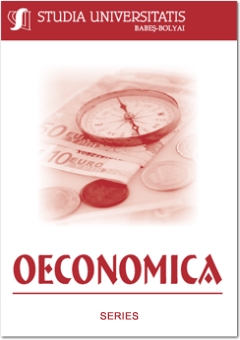EMPIRICAL EVIDENCE ON THE FISCAL THEORY OF PRICE LEVEL: THE CASE STUDY OF ROMANIAN POST-SOCIALIST ECONOMY
EMPIRICAL EVIDENCE ON THE FISCAL THEORY OF PRICE LEVEL: THE CASE STUDY OF ROMANIAN POST-SOCIALIST ECONOMY
Author(s): Anca Ioana Munteanu, Dorina Lazăr, Simona Gabriela MaşcaSubject(s): Economy
Published by: Studia Universitatis Babes-Bolyai
Keywords: Fiscal theory of price level; Monetary policy; Seignorage; Inflation; VECM.
Summary/Abstract: This paper investigates the inflationary effect of central government deficit. While the answer from conventional economic theory and monetary authorities emphases on the strong connection that characterize these two variables there has been controversial empirical evidence in measuring the strength and significance of the relationship: inflation-government deficit. In particular we investigate the causality between government deficit and inflation in the Romanian post-socialist economy (1997-2007) using a VECM model in which inflation is non-linearly related to fiscal deficit through narrow money and M1. Our purpose is to estimate this relationship as an intrinsically dynamic one using the conceptualization proposed by Terrones and Catao (2005). The focus is on the weak form of the Fiscal Theory of Price (FTP) which is closely related to the quantitative money theory that connects inflation with money. The econometrical results conclude that for the period considered the relationship deficit/GDP-inflation is statistically significant, improvement in the deficit/GDP ratio generating a smaller inflation. This connection suggests future policy implication that can be of success in the process of price stabilization.
Journal: Studia Universitatis Babes Bolyai - Oeconomica
- Issue Year: 55/2010
- Issue No: 3
- Page Range: 42-53
- Page Count: 12
- Language: English

